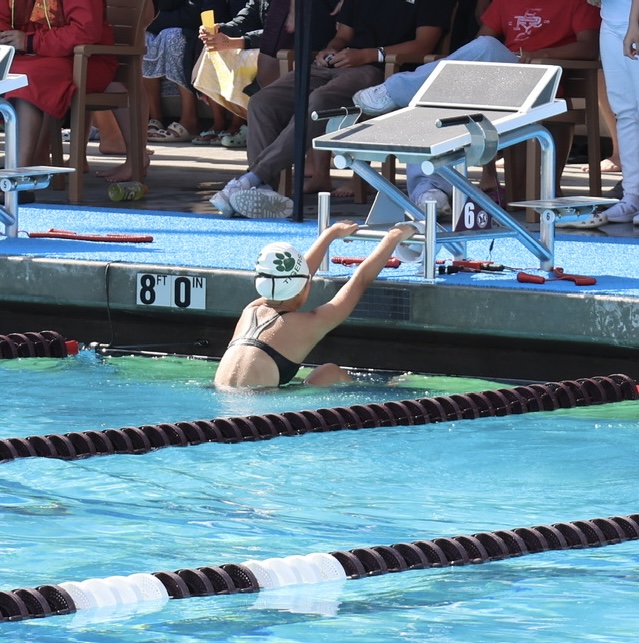“Three, two, one!” I yell as I run to cannonball into the pool. I cannonball into the pool at every
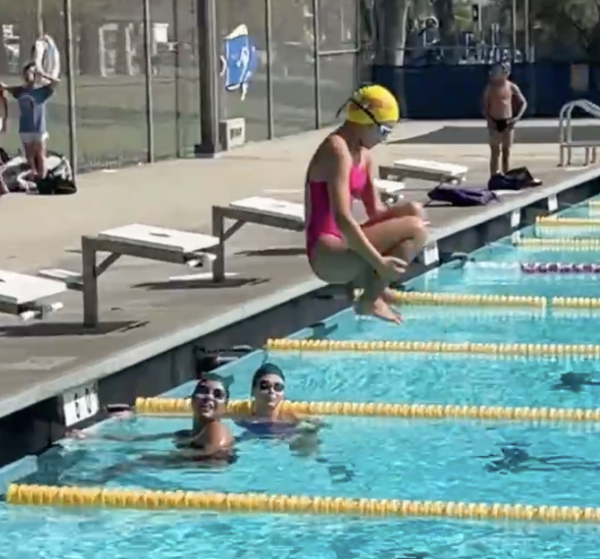
y swim practice. It’s not just fun; I also want to avoid the slow, imminent pain of lowering myself into the freezing water.
When it’s not high school swim season, I’m on my club swim team, where I started swimming in seventh grade. Club practice can be a grueling experience, particularly the timed sets where my coach would make us start over until we made the interval—even if we were only one second away from making the interval, we had to start the entire set over. One particularly memorable practice, we started the set over a punishing 15 times. Every swimmer suffers in silence because the tears are invisible in the water.
Despite that, I genuinely love swimming. The feeling of slicing through the water, the adrenaline rush in competitions, and my friendship with teammates—it all made me feel alive. I also became a better swimmer and learned a lot from my
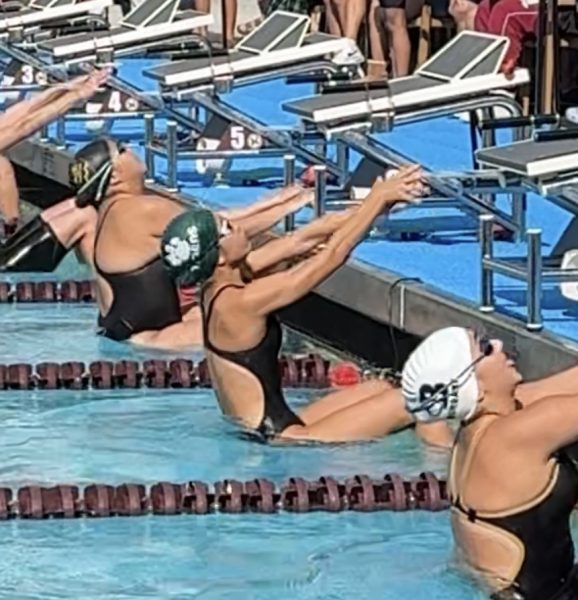
club coach, but beneath the surface of my passion for swimming lay a constant feeling of pressure. Every practice felt like a test, every meet a make-or-break moment. The relentless pursuit of perfection weighed heavily on my shoulders, overshadowing the joy I once found in the sport.
So when I read the school email announcing the start of spring sports, I had some mixed
feelings. Sure, I imagined myself walking out of the pool in my hot pink tech suit, strutting across the deck, and becoming the champion of CIFs (spoiler alert: I did NOT walk around in a hot pink tech suit, I did NOT strut across the deck, and I most definitely did NOT become champion of CIFs. In fact, I added to my race times and spent over two hundred dollars on merch alone), but at the same time, as a freshman, I didn’t really know anyone on the Westridge team. I didn’t know the coaches, I didn’t know my teammates, I didn’t know what practices were like, and there were so many things about the high school swim team I didn’t know about.

When I first joined the Westridge swim team, they had only about 20 people compared to other larger teams in our league. But I quickly learned that it’s not the size of the team that matters but the size of the team spirit. At the start of the season, I was hardly part of the team. I just competed for it. I never went to practice until the end of the season, but I quickly learned that I had been missing out. Swim practices were punctuated by laughter. One practice I will definitely remember is the first practice I went to, where we had a friendly two-person backstroke competition where the losers belly flopped all together.
Swim meets were also different. In the past, I absolutely dreaded them. The nerves, the pressure, the stress—it was all too much. In the high school team, it was all different. Yes, I still felt the nerves and pressure, but I slowly realized
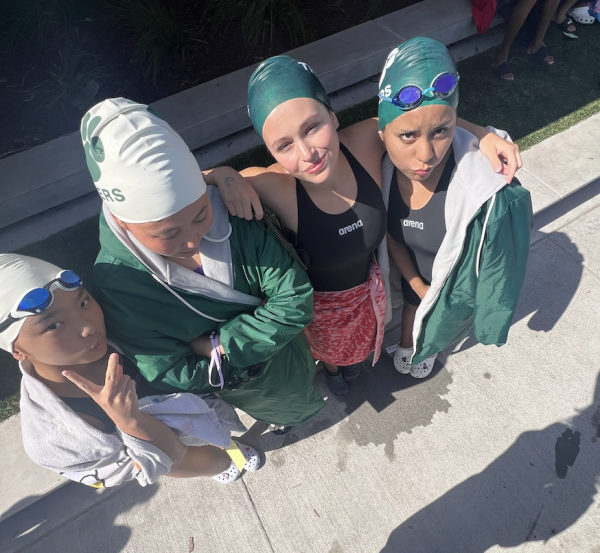
that being on a swim team wasn’t just about having fast times or being good at swimming; it was also about having fun with teammates and learning from each other. Swim meets transformed from a place of dread to a place of support and exhilaration. The coaches and teammates supported me even at big meets, like the prep league. When I added time to all of my events, the coaches assured me that it was ok to add and that times weren’t the most important thing; it was just to get out there and swim. I learned that it’s okay to make mistakes in swimming and learn from them and make myself a better swimmer.
Even in the most grueling races, the team encouraged each other, cheering for our teammates during races, hyping each other up, and offering support. We warmed up together, cheered each other on, and celebrated each other’s accomplishments. From a simple “You got this!” to getting help from others for race strategies, my teammates made me feel like we were, well, a team. My approach and attitude to swimming completely changed. I was no longer cannonballing into the pool alone.
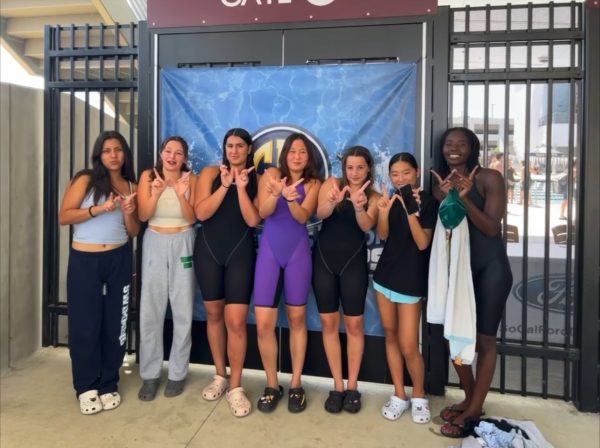
By the end of the season, I was attending practices regularly—I didn’t want to miss them. I didn’t feel that fear and dread during practices and meets at my club swim. Unlike my club experience, where the pressure to perform overshadowed the fun, the high school team showed me that swimming isn’t just about fast times—it’s about enjoying the sport with teammates who support and uplift each other. Through laughter-filled practices and memorable meets, I rediscovered my passion for swimming and can’t wait for the next season to begin.




























![Dr. Zanita Kelly, Director of Lower and Middle School, pictured above, and the rest of Westridge Administration were instrumental to providing Westridge faculty and staff the support they needed after the Eaton fire. "[Teachers] are part of the community," said Dr. Kelly. "Just like our families and students."](https://westridgespyglass.org/wp-content/uploads/2025/03/dr.-kellyyy-1-e1748143600809.png)






















